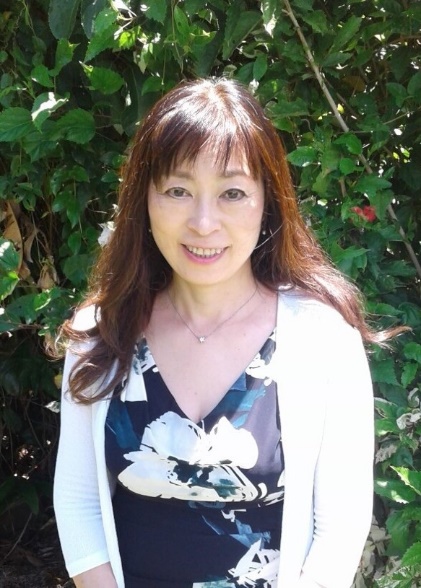SPRING SEMINAR: “Mind-Body Naikan Therapy: A way of self-discovery and self-renewal,” March 16, 9:00am – 12:30pm
Moiliili Hongwanji Mission
Presents a Spring Seminar
“Mind-Body Naikan Therapy:
A way of self-discovery and self-renewal”
Rev. Mari Sengoku, Ph.D.
Director of Mind-Body Naikan Center

Saturday, March 16, 2019
9:00 a.m. – 12:30 p.m
Moiliili Hongwanji Mission
902 University Avenue
Introduction to the Lecturer
Rev. Mari Sengoku, Ph.D., is a Jodo Shin Buddhist minister who serves as a mental health therapist for temple members and members of the public in both Japan and the U.S. She used to serve as a minister of Honpa Hongwanji Mission of Hawaii (1994 to 2007). She has also served as a chaplain in hospitals and hospices in Kyoto and Tottori, Japan, as well as in Hawaii. She has an MA degree in Education and Marriage and Family Therapy in the U.S., and earned her Ph.D. in Neuropsychiatry in Japan. She regularly lectures about Japanese therapies and spirituality in university classes for foreign students in Japan, as well as at nursing and medical schools. Dr. Sengoku is the Director of Shinshin-Mezame Naikan Center, with locations in Tottori prefecture in Japan. Shinshin-Mezame means “mind-body awakening.” She guides her clients in breathing and meditation techniques to enable them to enter the deeper reaches of the Naikan experience promptly.

What is Naikan?
Naikan is a Japanese word which means “inside looking” or “introspection.” Naikan is a method of meditative self-reflection, psychotherapy and counseling founded in 1950s by Rev. Ishin Yoshimoto - a Jodo Shin Buddhist minister. Now there are more than 40 Naikan centers in Japan, and the therapy has also taken root in the U.S., China, and Europe, with Naikan centers now established in Austria, Germany, China and Korea. Also in Sri Lanka, Dr. Sengoku and Theravada Buddhist monks at universities are in planning Naikan retreat and research project. In Naikan, the practitioner devotes oneself to self-examination on the following three themes: 1 – What you have received from others; 2 – What you have returned to others; 3 – What troubles and difficulties you have caused in relation to significant people in your life, beginning with your mother, father, and spouse, and continuing on to others. These relationships are examined by first dividing them into chronological order, then by putting yourself in the other’s shoes, and then by trying to recall concrete facts. Naikan gives a practitioner an opportunity to examine things objectively. As a result, practitioners become able to reinterpret and change their perspective toward the significant relationships in their lives. They come to discard narrow and self-serving points of view, and instead cultivate deeper understandings of self and other rooted in gratitude and an awareness of interdependence. This discovery can be profoundly transformative, leading to the resolution of problems and to the improvement of disease.
As Jodo Shin Buddhist followers, through reflecting on our relationships with others using Naikan themes, we attain insight into the basic notion of Jodo Shin Buddhist teachings based on the works of Shinran Shonin (1173-1263) including how our life is supported by other through “interdependence” (engi, jinen), the absolute grace of tariki or “other power,” liberation from ego-centered existence and realization of “no-self” or “non-ego” (muga). These insights into interdependence, other-power grace, and selflessness in turn generate deep feelings of gratitude and appreciation for others, feeling of repentance for causing trouble to others and feelings of “compassion” (jihi) for others.
Finally, the applications and objectives of Naikan are clarified as follows:
(1) First, Naikan is a spiritual way of transformation, illumination and enlightenment based on Jodo Shin Buddhist teachings which can be used by students, teachers, doctors, nurses, businessmen, homemakers, and so forth; (2) Second, Naikan is a psychotherapy and counseling method for those suffering from marital conflicts, juvenile delinquency, school truancy, alcohol or drug dependency, criminal behavior, neurosis, depressive disorders, and other psychological problems.
In conclusion, we might say Naikan is a kind of secular hoben or “expedient means” for getting insight into Jodo Shin Buddhist principles operating in everyday life.
Seminar Schedule
| 9:00am – 9:10am | Opening, Introduction |
| 9:10am – 9:50am | Lecture: Introduction to Naikan Therapy (40 min.) |
| 9:50am – 10:10am | Break (20 min.) |
| 10:10am – 12:10pm | Experiencing Naikan followed by Chair Yoga stretch and Breathing technique (120 min.) |
| 12:10pm – 12:30pm | Q&A Discussion, Closing |
Registration Fee: $10 (light refreshments is included).
Please RSVP to Moiliili Hongwanji @ 949-1659 or email mhm@moiliilihongwanji.org by March 10, 2019

No Comments to “SPRING SEMINAR: “Mind-Body Naikan Therapy: A way of self-discovery and self-renewal,” March 16, 9:00am – 12:30pm”